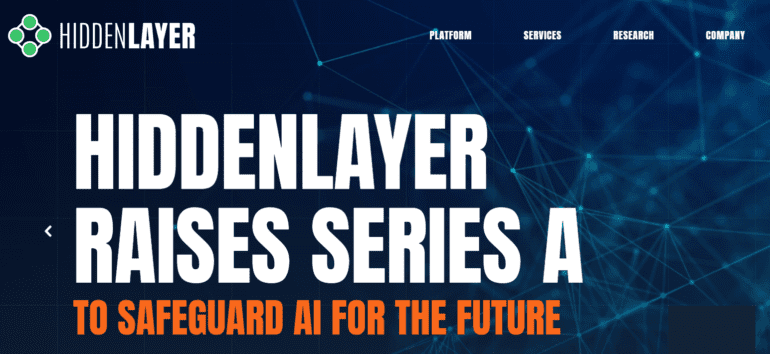TL;DR:
- HiddenLayer, a Texas startup, secures a substantial $50 million in new venture capital funding for AI security technology.
- Funding is led by M12, Microsoft’s Venture Fund, and Moore Strategic Ventures.
- Equity investments from Booz Allen Ventures, IBM Ventures, Capital One Ventures, and Ten Eleven Ventures.
- HiddenLayer aims to develop MLMDR platforms for monitoring machine learning algorithms, focusing on security against adversarial ML attacks.
- Their Machine Learning Security (MLSec) Platform promises real-time defense and response capabilities.
- HiddenLayer joins a growing group of startups dedicated to enhancing AI security.
- KPMG also enters the AI security space with its venture-backed startup, Cranium.
- Increased investments in AI security follow the launch of OpenAI’s ChatGPT and rising interest in LLMs and generative AI.
- Microsoft introduces an AI-powered security analysis tool for automated incident response and threat hunting.
- OpenAI releases a business edition of ChatGPT with a commitment to enterprise-grade security.
Main AI News:
In a striking display of investor confidence, Texas-based startup HiddenLayer has successfully secured a substantial $50 million in new venture capital funding. This financial infusion underscores the growing commitment within the tech industry to fortify the protection of code integrity within the realms of Artificial Intelligence (AI) and Large Language Models (LLM) training sets.
HiddenLayer, which emerged from stealth mode in July 2022 with an initial $6 million in funding, has announced that this latest funding round was spearheaded by none other than M12, Microsoft’s esteemed Venture Fund, in collaboration with Moore Strategic Ventures. This significant financial backing also includes equity investments from prominent entities such as Booz Allen Ventures, IBM Ventures, Capital One Ventures, and Ten Eleven Ventures.
Distinguished as the recipient of the prestigious ‘Most Innovative Startup’ accolade at this year’s RSA Innovation Sandbox, HiddenLayer is making a bold proposition for the future. They envision a landscape where Machine Learning Detection and Response (MLMDR) platforms are diligently overseeing the inputs and outputs of machine learning algorithms. These platforms are engineered to detect any anomalous activity that aligns with adversarial ML attack techniques.
HiddenLayer is earnestly working towards the development of a cutting-edge Machine Learning Security (MLSec) Platform, furnished with advanced tools designed to safeguard ML models from adversarial attacks, vulnerabilities, and malicious code injections. The promise is a real-time defense and response system, equipped with features including alerting, isolation, profiling, and counter-deception measures.
HiddenLayer stands shoulder-to-shoulder with a new wave of startups dedicated to fortifying the security of AI applications and deployments. Earlier this year, the renowned consulting firm KPMG ventured into the startup realm by launching Cranium, a venture-backed initiative focused on delivering an end-to-end AI security and trust platform. This platform is adept at mapping AI pipelines, validating security protocols, and actively monitoring for adversarial threats.
The surge in investments dedicated to AI security comes on the heels of OpenAI’s high-profile launch of the ChatGPT application. This launch has sparked fierce competition among software providers, both established and emerging, to harness the potent capabilities of Large Language Models (LLMs) and generative AI.
Notably, software juggernaut Microsoft has introduced an AI-powered security analysis tool, designed to automate incident response and threat hunting tasks. This tool also highlights the growing prevalence of generative AI chatbots in security applications.
In a parallel development, OpenAI has unveiled a business-centric edition of ChatGPT, underscoring its commitment to enterprise-grade security. OpenAI has pledged not to utilize client-specific prompts and data in the training of its models, ensuring a heightened level of data integrity and confidentiality.
Conclusion:
HiddenLayer’s substantial funding reflects the growing significance of AI security in the tech industry. As AI and Large Language Models become increasingly prevalent, protecting code and data integrity is of paramount importance. This investment highlights the competitive landscape as various players work to fortify AI security, offering promising solutions to address emerging threats and vulnerabilities.

